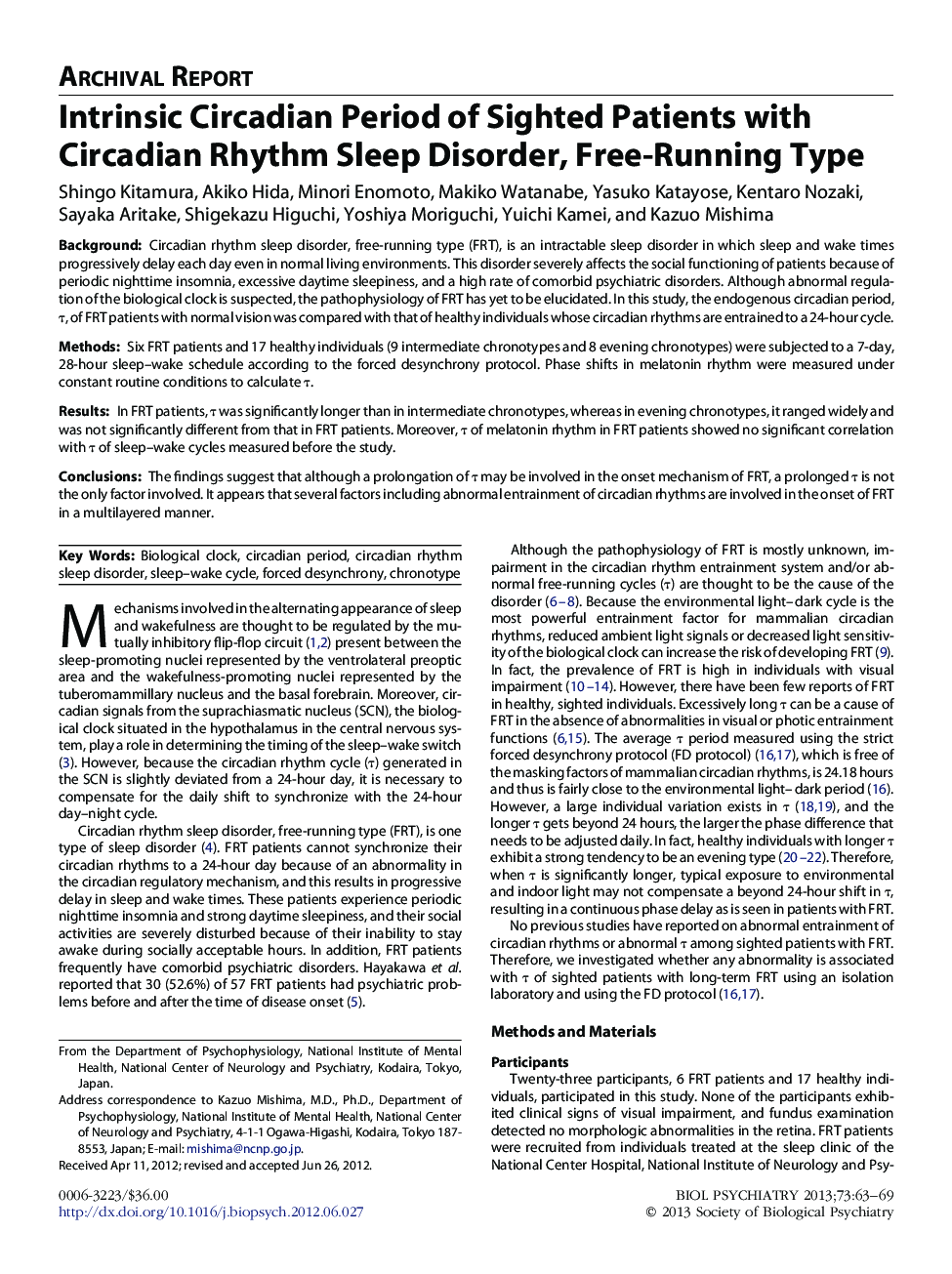| Article ID | Journal | Published Year | Pages | File Type |
|---|---|---|---|---|
| 4177991 | Biological Psychiatry | 2013 | 7 Pages |
BackgroundCircadian rhythm sleep disorder, free-running type (FRT), is an intractable sleep disorder in which sleep and wake times progressively delay each day even in normal living environments. This disorder severely affects the social functioning of patients because of periodic nighttime insomnia, excessive daytime sleepiness, and a high rate of comorbid psychiatric disorders. Although abnormal regulation of the biological clock is suspected, the pathophysiology of FRT has yet to be elucidated. In this study, the endogenous circadian period, τ, of FRT patients with normal vision was compared with that of healthy individuals whose circadian rhythms are entrained to a 24-hour cycle.MethodsSix FRT patients and 17 healthy individuals (9 intermediate chronotypes and 8 evening chronotypes) were subjected to a 7-day, 28-hour sleep–wake schedule according to the forced desynchrony protocol. Phase shifts in melatonin rhythm were measured under constant routine conditions to calculate τ.ResultsIn FRT patients, τ was significantly longer than in intermediate chronotypes, whereas in evening chronotypes, it ranged widely and was not significantly different from that in FRT patients. Moreover, τ of melatonin rhythm in FRT patients showed no significant correlation with τ of sleep–wake cycles measured before the study.ConclusionsThe findings suggest that although a prolongation of τ may be involved in the onset mechanism of FRT, a prolonged τ is not the only factor involved. It appears that several factors including abnormal entrainment of circadian rhythms are involved in the onset of FRT in a multilayered manner.
